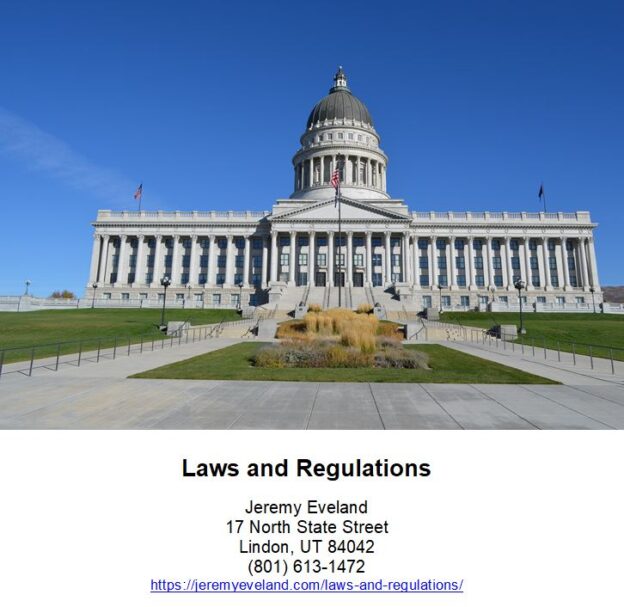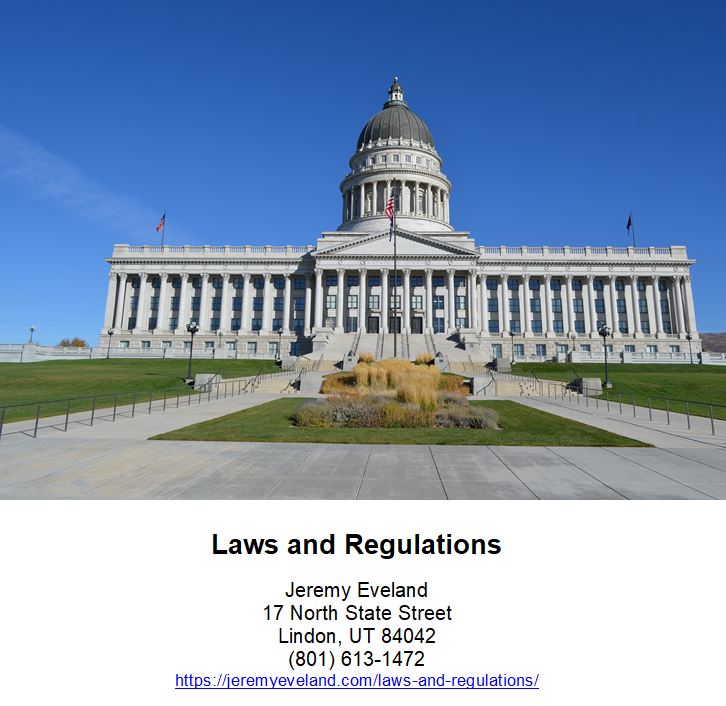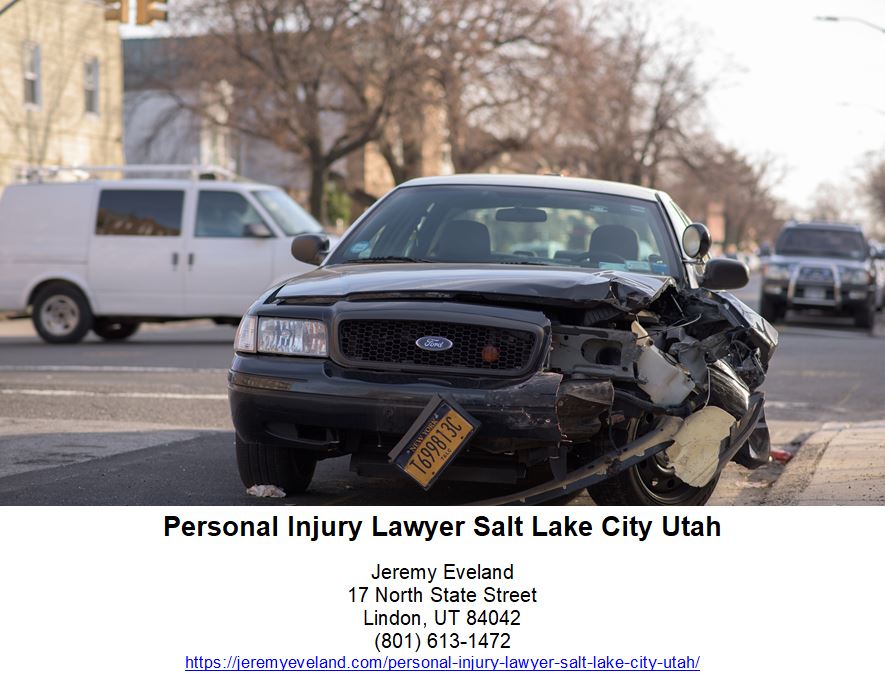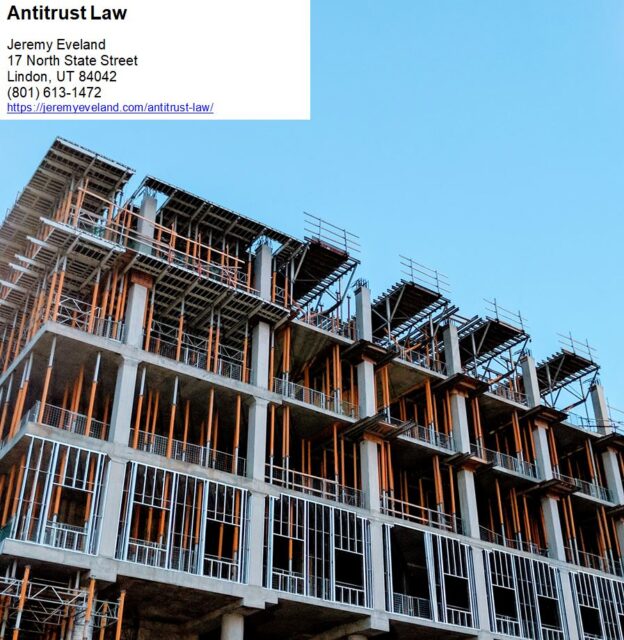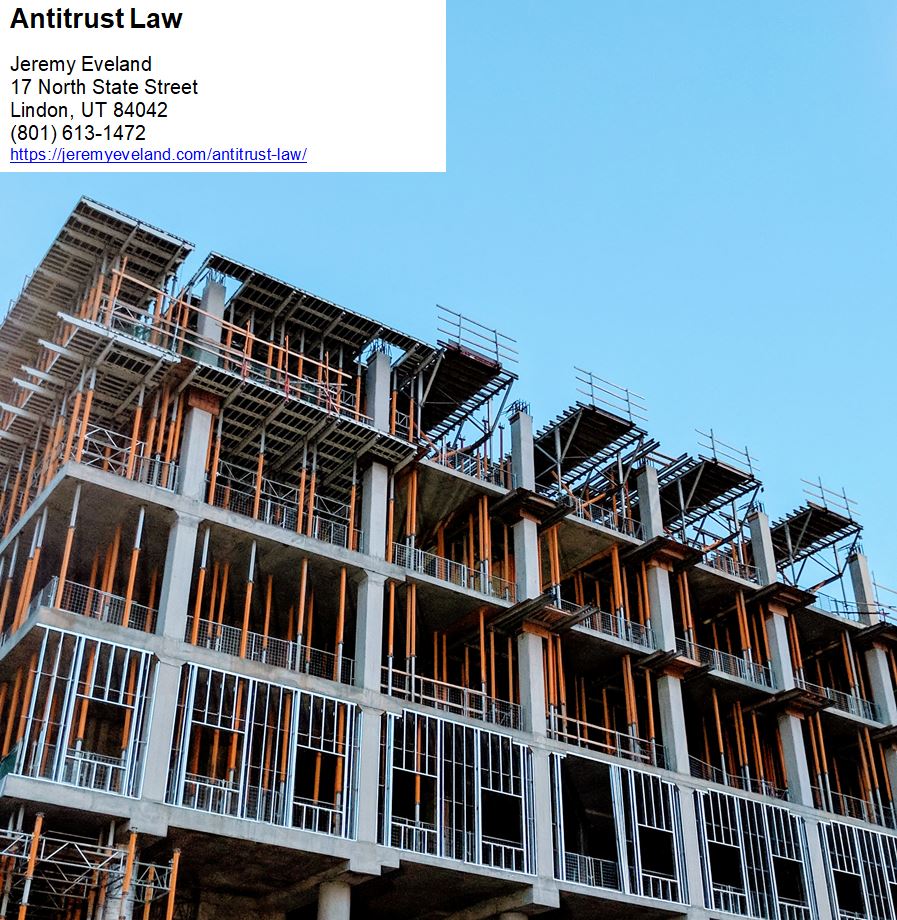-
Attorney at Law
- Introduction
- Exploring the Different Practice Areas of Contract Lawyers in Murray, Utah
- The Bottom Line: What You Need to Know About Contract Lawyers in Murray, Utah
- Elements of Contract Formation
- How Businesses Can Benefit from Contract Lawyers in Murray, Utah
- Contract Disputes, Lawsuits, and Mediation in Murray Utah
- How to Properly Negotiate a Contract in Murray Utah
- Finding a Skilled Attorney in Murray, Utah for Your Contract Disputes
- Why You Need a Contract Lawyer for Drafting and Litigating Contracts
“Contract Lawyer Murray Utah: Your Trusted Legal Partner”
Introduction
Contract Lawyer Murray Utah is a law firm that specializes in contract law. We provide legal services to individuals, businesses, and organizations in the Murray, Utah area. Our attorneys have extensive experience in contract law and are committed to providing our clients with the highest quality legal advice and representation. We understand the importance of contracts and the need to ensure that they are properly drafted and executed. We strive to provide our clients with the best possible legal advice and representation in order to protect their interests. We are dedicated to providing our clients with the best possible legal services and to helping them achieve their goals.
Exploring the Different Practice Areas of Contract Lawyers in Murray, Utah
Contract lawyers in Murray, Utah specialize in a variety of practice areas. These areas include business law, real estate law, family law, and estate planning. Each of these practice areas requires a different set of skills and knowledge to effectively represent clients.
Business law is a broad area of practice that covers a variety of legal issues related to businesses. Contract lawyers in Murray, Utah who specialize in business law can help clients with matters such as forming a business entity, drafting contracts, and resolving disputes. They can also provide advice on corporate governance, intellectual property, and labor and employment law.
Real Estate Law
Real estate law is another area of practice that contract lawyers in Murray, Utah specialize in. This area of law covers a wide range of legal issues related to the buying, selling, and leasing of real estate. Contract lawyers can help clients with matters such as drafting purchase agreements, negotiating leases, and resolving disputes. They can also provide advice on zoning and land use regulations.
Family Law
Family law is a practice area that deals with legal issues related to family relationships. Contract lawyers in Murray, Utah who specialize in family law can help clients with matters such as divorce, child custody, and adoption. They can also provide advice on prenuptial agreements, spousal support, and other family-related issues.
Estate planning is a practice area that involves creating a plan for the distribution of a person’s assets after their death. Contract lawyers in Murray, Utah who specialize in estate planning can help clients with matters such as drafting wills, setting up trusts, and creating powers of attorney. They can also provide advice on tax planning and other estate-related issues.
Contract lawyers in Murray, Utah are experienced in a variety of practice areas. They can provide clients with the legal advice and representation they need to effectively resolve their legal issues. Whether it is business law, real estate law, family law, or estate planning, contract lawyers in Murray, Utah can help clients navigate the legal system and protect their rights.
The Bottom Line: What You Need to Know About Contract Lawyers in Murray, Utah
Contract lawyers in Murray, Utah are experienced professionals who specialize in helping individuals and businesses draft, review, and negotiate contracts. They are knowledgeable in the laws and regulations that govern contracts and can provide valuable advice and guidance to ensure that all parties involved are protected. Contract lawyers can help with a variety of contract-related matters, including drafting, reviewing, and negotiating contracts, as well as providing legal advice on contract disputes.
Contract lawyers in Murray, Utah can provide invaluable assistance to individuals and businesses in a variety of ways. They can help to ensure that contracts are legally binding and enforceable, and can provide advice on how to best protect the interests of all parties involved. Additionally, contract lawyers can provide guidance on how to resolve contract disputes, and can help to ensure that all parties are in compliance with applicable laws and regulations.
Contract lawyers in Murray, Utah are experienced professionals who can provide invaluable assistance to individuals and businesses. They can help to ensure that contracts are legally binding and enforceable, and can provide advice on how to best protect the interests of all parties involved. Additionally, contract lawyers can provide guidance on how to resolve contract disputes, and can help to ensure that all parties are in compliance with applicable laws and regulations. With the help of a contract lawyer, individuals and businesses can rest assured that their contracts are legally sound and that their interests are protected.
Elements of Contract Formation
Contract formation is the process of creating a legally binding agreement between two or more parties. It involves the exchange of promises, consideration, and acceptance of the terms of the agreement. The elements of contract formation include offer, acceptance, consideration, and mutual assent.
Offer: An offer is an expression of willingness to enter into a contract. It must be definite and certain, and must include all the essential terms of the agreement. The offer must be communicated to the other party in order for it to be valid.
Acceptance: Acceptance is the agreement to the terms of the offer. It must be communicated to the offeror in order to be valid. The acceptance must be unconditional and must not contain any additional terms or conditions.
Consideration: Consideration is the exchange of something of value between the parties. It can be money, goods, services, or a promise to do something. Consideration must be given in order for the contract to be legally binding.
Mutual Assent: Mutual assent is the agreement of both parties to the terms of the contract. It must be expressed in a clear and unambiguous manner. Both parties must understand the terms of the agreement and agree to them in order for the contract to be valid.
These are the elements of contract formation. All of these elements must be present in order for a contract to be legally binding. If any of these elements are missing, the contract may be deemed invalid.
How Businesses Can Benefit from Contract Lawyers in Murray, Utah
Businesses in Murray, Utah can benefit from the services of contract lawyers. Contract lawyers are experienced in drafting, reviewing, and negotiating contracts. They can help businesses protect their interests and ensure that their contracts are legally binding.
Contract lawyers can help businesses draft contracts that are tailored to their specific needs. They can review existing contracts to ensure that they are legally sound and that they protect the interests of the business. They can also negotiate contracts on behalf of the business to ensure that the terms are fair and beneficial to the business.
Contract lawyers can also help businesses understand the legal implications of their contracts. They can provide advice on how to comply with applicable laws and regulations. They can also help businesses resolve disputes that arise from contracts.
Contract lawyers can also help businesses protect their intellectual property. They can draft contracts that protect the business’s trade secrets, copyrights, and trademarks. They can also help businesses protect their confidential information and ensure that it is not misused or disclosed.
Contract lawyers can also help businesses protect their assets. They can draft contracts that protect the business’s assets from creditors and other third parties. They can also help businesses protect their assets in the event of a dispute or bankruptcy.
Contract lawyers can help businesses save time and money. They can help businesses avoid costly litigation by ensuring that their contracts are legally sound. They can also help businesses resolve disputes quickly and efficiently.
Contract lawyers in Murray, Utah can help businesses protect their interests and ensure that their contracts are legally binding. They can help businesses draft, review, and negotiate contracts that are tailored to their specific needs. They can also provide advice on how to comply with applicable laws and regulations. They can help businesses protect their intellectual property, confidential information, and assets. Finally, they can help businesses save time and money by avoiding costly litigation and resolving disputes quickly and efficiently.
Contract Disputes, Lawsuits, and Mediation in Murray Utah
Murray, Utah is a city located in Salt Lake County, and is home to a population of approximately 50,000 people. As with any city, disputes can arise between individuals and businesses, and when they do, it is important to understand the legal options available.
When a dispute arises, the first step is to try to resolve the issue through negotiation. If the parties are unable to reach an agreement, they may choose to pursue legal action. This could include filing a lawsuit in court or engaging in mediation.
Contract Disputes
Contract disputes are common in Murray, Utah. When a contract dispute arises, the parties may choose to pursue legal action. This could include filing a lawsuit in court or engaging in mediation.
In a lawsuit, the parties present their case to a judge or jury, who will decide the outcome. This can be a lengthy and expensive process.
Mediation is an alternative to litigation. In mediation, the parties meet with a neutral third party who helps them reach an agreement. Mediation is often less expensive and time-consuming than litigation.
Lawsuits
Lawsuits are another option for resolving disputes in Murray, Utah. In a lawsuit, the parties present their case to a judge or jury, who will decide the outcome. This can be a lengthy and expensive process.
Lawsuits can be filed in either state or federal court. In state court, the lawsuit is filed in the county where the dispute occurred. In federal court, the lawsuit is filed in the district court for the district in which the dispute occurred.
Mediation
Mediation is an alternative to litigation. In mediation, the parties meet with a neutral third party who helps them reach an agreement. Mediation is often less expensive and time-consuming than litigation.
Mediation is voluntary, and the parties can choose to end the process at any time. The mediator does not make a decision, but instead helps the parties reach an agreement that is acceptable to both sides.
When a dispute arises in Murray, Utah, the parties have several options for resolving the issue. These include filing a lawsuit in court, engaging in mediation, or attempting to negotiate a resolution. Each option has its own advantages and disadvantages, and it is important to understand the legal process before making a decision.
How to Properly Negotiate a Contract in Murray Utah
Negotiating a contract in Murray, Utah can be a complex process. It is important to understand the legal implications of the contract and to ensure that all parties involved are in agreement. Here are some tips to help you properly negotiate a contract in Murray, Utah.
1. Understand the Terms of the Contract: Before entering into negotiations, it is important to understand the terms of the contract. Make sure you understand the scope of the agreement, the obligations of each party, and any potential risks or liabilities.
2. Research the Other Party: Before entering into negotiations, it is important to research the other party. Make sure you understand their interests, goals, and objectives. This will help you to better understand their position and to negotiate more effectively.
3. Prepare a Negotiation Strategy: Before entering into negotiations, it is important to prepare a negotiation strategy. This should include a list of objectives, a timeline, and a plan for how to reach an agreement.
4. Negotiate in Good Faith: Negotiations should be conducted in good faith. This means that both parties should be honest and open with each other and should strive to reach an agreement that is beneficial to both parties.
5. Seek Professional Advice: If you are unsure of how to properly negotiate a contract in Murray, Utah, it is important to seek professional advice. An experienced attorney can provide valuable guidance and advice on how to properly negotiate a contract.
By following these tips, you can ensure that you properly negotiate a contract in Murray, Utah. It is important to understand the legal implications of the contract and to ensure that all parties involved are in agreement. With the right preparation and guidance, you can successfully negotiate a contract that is beneficial to all parties involved.
Finding a Skilled Attorney in Murray, Utah for Your Contract Disputes
If you are in need of a skilled attorney in Murray, Utah for contract disputes, you have come to the right place. Here, we specialize in contract disputes and have extensive experience in this area of law. Our attorneys are highly knowledgeable and experienced in all aspects of contract law, and we are committed to providing our clients with the highest quality legal representation.
We understand that contract disputes can be complex and time-consuming. We are dedicated to providing our clients with the best possible legal advice and representation. Our attorneys are well-versed in the laws governing contract disputes and are prepared to handle any dispute that may arise. We are committed to providing our clients with the best possible outcome in their contract dispute.
The attorneys are experienced in negotiating and litigating contract disputes. We are familiar with the various strategies and tactics used in contract disputes and are prepared to use them to our clients’ advantage. We are also experienced in drafting and reviewing contracts, and we can help our clients ensure that their contracts are legally binding and enforceable.
We are committed to providing our clients with the highest quality legal representation. We are dedicated to providing our clients with the best possible outcome in their contract dispute. Our attorneys are knowledgeable and experienced in all aspects of contract law, and we are prepared to handle any dispute that may arise. If you are in need of a skilled attorney in Murray, Utah for contract disputes, contact us today.
Why You Need a Contract Lawyer for Drafting and Litigating Contracts
Contracts are an essential part of any business transaction. They provide a legally binding agreement between two or more parties, outlining the terms and conditions of the agreement. As such, it is important to ensure that contracts are drafted and litigated properly. A contract lawyer can help to ensure that contracts are drafted and litigated in a manner that is legally sound and in the best interests of all parties involved.
A contract lawyer is an experienced legal professional who specializes in drafting and litigating contracts. They are knowledgeable in the laws and regulations that govern contracts, and can provide advice on how to best structure a contract to ensure that it is legally binding and enforceable. They can also provide guidance on how to best protect the interests of all parties involved.
Contract lawyers are also experienced in litigating contracts. If a dispute arises between two or more parties, a contract lawyer can help to resolve the dispute in a manner that is fair and equitable to all parties involved. They can also provide advice on how to best protect the interests of the parties involved in the dispute.
In addition to drafting and litigating contracts, contract lawyers can also provide advice on how to best protect the interests of the parties involved in the contract. They can provide advice on how to best structure the contract to ensure that it is legally binding and enforceable. They can also provide advice on how to best protect the interests of the parties involved in the contract, such as how to best protect confidential information or how to best protect intellectual property rights.
Overall, a contract lawyer is an invaluable asset when it comes to drafting and litigating contracts. They are knowledgeable in the laws and regulations that govern contracts, and can provide advice on how to best structure a contract to ensure that it is legally binding and enforceable. They can also provide guidance on how to best protect the interests of all parties involved. With their help, businesses can ensure that their contracts are legally sound and in the best interests of all parties involved.
Areas We Serve
We serve individuals and businesses in the following locations:
Salt Lake City Utah
West Valley City Utah
Provo Utah
West Jordan Utah
Orem Utah
Sandy Utah
Ogden Utah
St. George Utah
Layton Utah
South Jordan Utah
Lehi Utah
Millcreek Utah
Taylorsville Utah
Logan Utah
Murray Utah
Draper Utah
Bountiful Utah
Riverton Utah
Herriman Utah
Spanish Fork Utah
Roy Utah
Pleasant Grove Utah
Kearns Utah
Tooele Utah
Cottonwood Heights Utah
Midvale Utah
Springville Utah
Eagle Mountain Utah
Cedar City Utah
Kaysville Utah
Clearfield Utah
Holladay Utah
American Fork Utah
Syracuse Utah
Saratoga Springs Utah
Magna Utah
Washington Utah
South Salt Lake Utah
Farmington Utah
Clinton Utah
North Salt Lake Utah
Payson Utah
North Ogden Utah
Brigham City Utah
Highland Utah
Centerville Utah
Hurricane Utah
South Ogden Utah
Heber Utah
West Haven Utah
Bluffdale Utah
Santaquin Utah
Smithfield Utah
Woods Cross Utah
Grantsville Utah
Lindon Utah
North Logan Utah
West Point Utah
Vernal Utah
Alpine Utah
Cedar Hills Utah
Pleasant View Utah
Mapleton Utah
Stansbury Par Utah
Washington Terrace Utah
Riverdale Utah
Hooper Utah
Tremonton Utah
Ivins Utah
Park City Utah
Price Utah
Hyrum Utah
Summit Park Utah
Salem Utah
Richfield Utah
Santa Clara Utah
Providence Utah
South Weber Utah
Vineyard Utah
Ephraim Utah
Roosevelt Utah
Farr West Utah
Plain City Utah
Nibley Utah
Enoch Utah
Harrisville Utah
Snyderville Utah
Fruit Heights Utah
Nephi Utah
White City Utah
West Bountiful Utah
Sunset Utah
Moab Utah
Midway Utah
Perry Utah
Kanab Utah
Hyde Park Utah
Silver Summit Utah
La Verkin Utah
Morgan Utah
Contract Lawyer Murray Utah Consultation
When you need help from a Contract Lawyer near Murray Utah call Jeremy D. Eveland, MBA, JD (801) 613-1472 for a consultation.
Jeremy Eveland
17 North State Street
Lindon UT 84042
(801) 613-1472
Related Posts
Business Succession Lawyer Spanish Fork Utah
Corporate Attorney St. George Utah
Business Strategy and Consulting
Business Succession Lawyer Roy Utah
Business Lawyer St George Utah
Estate Planning Lawyer Ogden Utah
Business Succession Lawyer Pleasant Grove Utah
Market Analysis For Business Antitrust Merger
[geocentric_weather id=”b0824497-c005-4e06-8eed-3d14d7069c61″]
[geocentric_about id=”b0824497-c005-4e06-8eed-3d14d7069c61″]
[geocentric_neighborhoods id=”b0824497-c005-4e06-8eed-3d14d7069c61″]
[geocentric_thingstodo id=”b0824497-c005-4e06-8eed-3d14d7069c61″]
[geocentric_busstops id=”b0824497-c005-4e06-8eed-3d14d7069c61″]
[geocentric_mapembed id=”b0824497-c005-4e06-8eed-3d14d7069c61″]
[geocentric_drivingdirections id=”b0824497-c005-4e06-8eed-3d14d7069c61″]
[geocentric_reviews id=”b0824497-c005-4e06-8eed-3d14d7069c61″]




